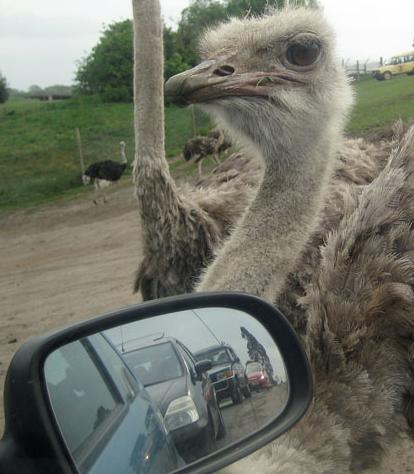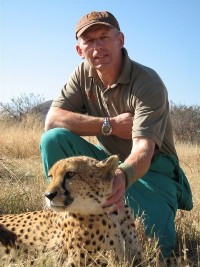Buy this advertising space
my.britevents.com/adsThis ad costs just £0.001 per page. Can you afford NOT to buy this advert?

my.britevents.com/adsThis ad costs just £0.001 per page. Can you afford NOT to buy this advert?

redletterdays.comIrresistable gifts, including short breaks, thrills, attractions, adventure and gifts.

www.booking.comSave up to 40% off UK hotel rooms. The perfect weekend getaway.
Feature article by BritEvents.
0 Comments
Previous: Natural Observations by June Waley
Voted best attraction in the Midlands by both parents and their children, Bewdley's West Midlands Safari Park is fun for all the family. We sent BritEvents' Lucy Middleton to see what all the fuss is about, and to enjoy an ice cream or two, on us!

By Lucy Middleton, BritEvents.com
It's easy to see why the public flock in their thousands to the The West Midland Safari Park in Bewdley, Worcestershire.
Originally built in 1973, the 200 acre park has steadily expanded over the years and is now one of the most popular places to go for a day out in the West Midlands area.
The West Midland Safari park is home to countless species of animals including lions, tigers, camels, elephants, rhinos, wolves, buffalo, zebra, antelope and deer.

Get close from the comfort of your car to animals you've only ever seen on TV or read about along the 4 mile long park drive.
And the fun doesn't stop there - the park also boasts a number of exhibitions you can explore on foot, fascinating shows to see and with an impressive amusement park area, the day is complete.
Walking with Lemurs is the new 2011 attraction at WMSP. This brand new exhibit is proving to be very popular. An area of the park once derelict, it has now been renovated into a walk-through wooded area that allows visitors to stroll amongst Madagascar's most interesting mammal, the lemur.
Here you'll see the resident ring-tailed lemurs captivating audiences with their highly-contrasted black and white coats and dazzling orange eyes; the area is also home to three other species of lemur, two of which are critically endangered.
How many species will you spot leaping high above you through the canopy of trees?
Though traditional zoos have their charms, the West Midland Safari Park (WMSP) offers an unusual opportunity to be up close and personal with wild animals from across the globe.

The WMSP also plays a crucial part in the future of many species of animals, including those that can be seen on the safari drive. The majority of the species kept in the WMSP are endangered or even critically so in the wild.
BritEvents' Lucy Middleton was able to speak to Bob Lawrence, the Director of Wildlife about the park's dedication to animal care, research, conservation and the education provided to visitors about the resident animals.
"I think in the last 5 or 6 years, there has been a perceptible fall away in the criticism of zoos that keep animals in captivity because we're making far more of an effort to tell people what we're doing in the way of research, education and conservation" said Bob Lawrence.
Bob also went on to say that times have changed since the 1970s, when arguably animals were kept solely for the entertainment of humans. Now the focus is on the animals' welfare and, as he points out below, there are several species of animal that now require a captive breeding program in order to save them from extinction.
Conservation is a matter close to WMSP's heart and the park is part of many international programs. WMSP provide a substantial amount of support to rainforest conservation in Brazil and also owns a very large conservation and research centre in Namibia, Africa.
![]()
"All the carnivore enclosures have patrolmen in there, along with men in the watchtowers who operate the electric gates.

The men in the watchtowers are a second pair of eyes for the patrolmen. Other enclosures such as the rhinos or elephants, animals that are large and could potentially cause damage are also watched closely by patrolmen."
![]()
"The giraffes are popular, and of course the white lions. We're famous for our white lions, having the only pride of them in the UK. White Bengal tigers are also popular, which is good as it means they gain attention. White Bengal tigers are critically endangered, they haven't been recorded as being seen in the wild since the 1950s so they are another animal that we need to save, though it may be too late."
![]()
"The Philippine spotted deer. To me it's got a classic modern conservation program, we don't actually own the animals, we hold them in trusts for the Philippino government. Their program runs all over Europe and we pay a levy to the Philippines to have the animals which is used to help rebuild habitats. The plan is for those involved in the program to then transport the deer back to their homeland be released into the wild.
We keep them in the old wolves' exhibit and they're happy out there, we had a tough winter but they were fine and they've just had a calf. It's unfortunate that they were hunted and their homes were ruined by deforestation. The spotted deer are now down to their last 300 and it's sad when they're so easy to keep."
![]()
"After their first winter they're fine, we just have to be careful when they give birth to their young over the colder months; if they seem to be struggling then we bring them in.
We had the African hunting dogs give birth to a litter in the late autumn and they just dug a hole under the road and they were OK. We had heated burrows under the house specifically for them but they had to dig there! We then had to reinforce the road to make it safe."
![]()
"Dolphins and polar bears. The requirements needed for keeping dolphins healthy are rarely met, we kept dolphins once but there were far too many problems. Polar bears are the same too, both species are incredibly intelligent and get stressed easily. The closest place now where you can see dolphins and polar bears where their needs are met is Seaworld in Florida."

![]()
"There are only 12 zoos in the world that have an aye-aye so ours is relatively unusual, we're hoping to get a female in for him soon. The African hunting dogs are also rather unusual in captivity too and are also incredibly endangered."
![]()
"Not really, the problem we've had is keeping their numbers down as they were throwing out a calf each year and we were running out of space! In regards to their care they're pretty easy to keep; they have a shed with heating if they require but they're happiest in the mud and the colder it gets, the deeper into the water they go. They are regarded as the most dangerous animal in the world, people don't realise that they are so aggressive."
![]()
"We go through about 200 tonnes of hay and straw, 300 tonnes of concentrated food, vast amounts of fruit and vegetables and a lot of meat. All in all, it easily costs around £300,000 a year to feed all the animals."
![]()
"The lemurs have quite a specialised diet and eat plenty of fruit. The sea lions' diet consists solely of fish so that's rather specialised too."
![]()
"Well they had no particular conservation value and that is extremely important to us, so we used the space where the monkeys were to put the wolves and cheetahs, which are both endangered species. The monkeys were then distributed throughout zoos in Europe."
Don't miss out on visiting one of the best zoos in England this year!
With the summer coming up, the West Midland Safari Park is an ideal place to enjoy yourself. It's a fun day out for people of all ages and there's so much to see that the park provides you with a free return ticket so you can come back at a later date. It's fantastic value for money and it feels good to know that with each ticket bought, you're helping to care for the future of our planet's wildlife.
Book your tickets today by visiting the West Midlands Safari Park website.